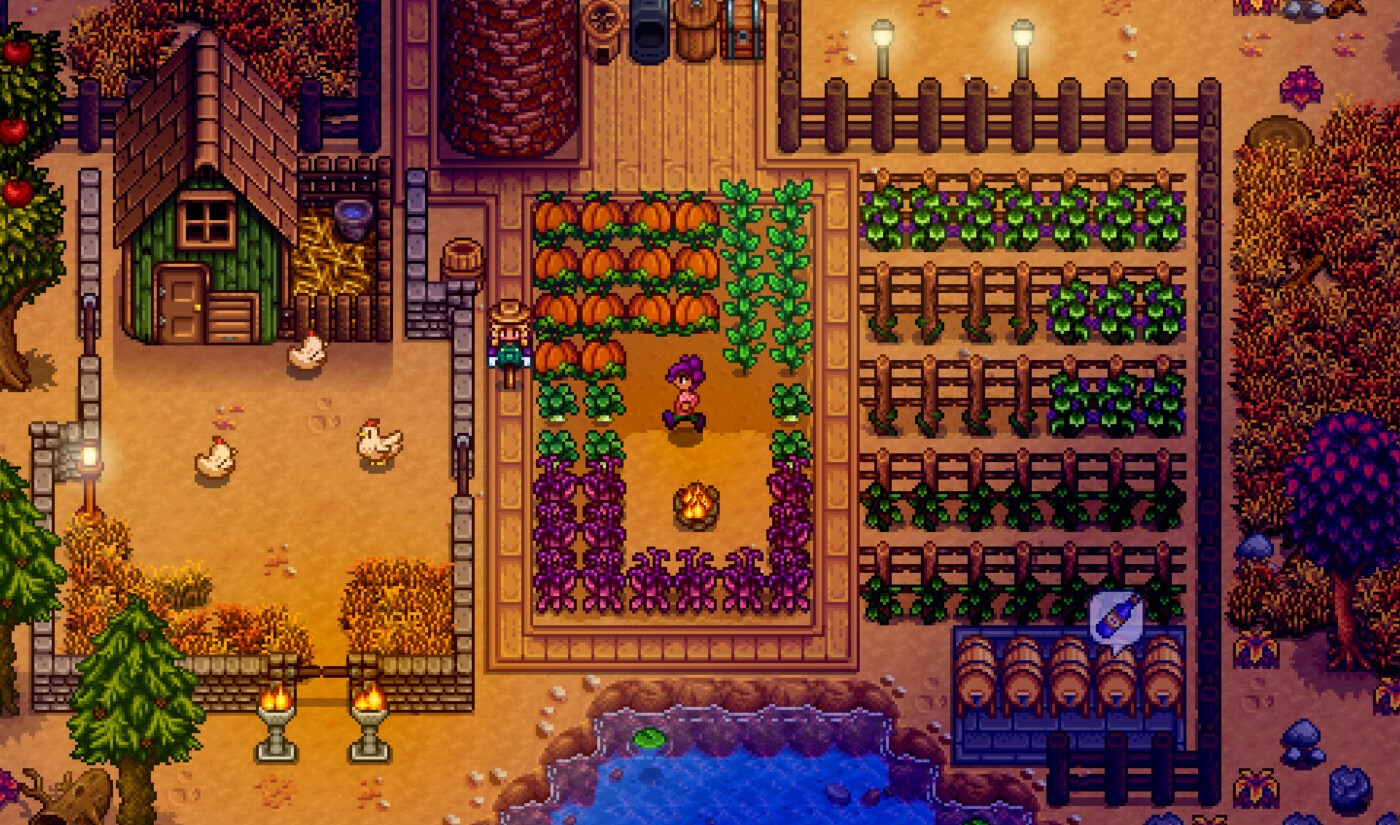Reliably comforting: the art of the cosy game
It’s a Tuesday evening, no social plans and no chores. A perfect opportunity for some gaming, but what game should I play? Should I look at new releases, or maybe pick something I haven’t touched in my games library? Who am I kidding – it will be the same answer as always, Stardew Valley.
In an industry that is producing more games year on year in an ever-increasing variety of genres and styles, why do so many people put thousands of hours into one game? Especially games that don’t have online progression where continuous ‘seasons’ or cosmetic updates create new challenges to beat, or unlocks to create.
For these games, such as Stardew Valley, Minecraft, Terraria and even sandbox RPGs like Skyrim, it is the reliability of the setting that gives comfort. The soundtracks are unique, if not iconic, and they socialize the player into relaxing. Hearing the Stardew Valley ‘Winter Season’ theme in a shop or on the radio would almost be unsettling, but the noise suddenly switches my attention onto fishing for squid or digging for snow yams, not the worries of everyday life.
Your farm in Stardew Valley is not going to get destroyed
Interaction with NPCs and the environment of the game is also key. There is comfort in knowing that Skyrim’s Lydia is still sworn to carry my burdens, or that Stardew Valley’s Abigail curiously thinks the amethyst I gave her is delicious. Even the ‘voices’ of Animal Crossing characters are relaxing when in context, because the player associates the noise with gaming and unwinding – rather than hearing it for the slightly aggravating sound effect it actually is.
To be a truly cosy game that players return to hour after hour, there does need to be a sandbox or at least replayability to the game. Linear adventure games with a rich story and possibly a twist ending lose their impact after several playthroughs, particularly if there is limited choice in how the story ends or no collectibles. The cosy games, meanwhile, have a blend of some story or structure, but enough freedom and options to allow for different outcomes. I know what questlines there are in Fallout New Vegas, but the ability to change my standing with different in game factions encourages me to try out all of the different possibilities.
Where the sandbox games truly excel at being cosy is the ability to build your own area, be it Animal Crossing‘s island, Stardew Valley‘s farm or the blank slate of Minecraft. You don’t even need to engage with what limited progression the games have. You can instead choose your own goal of building something that fits your own tastes. It’s a rare opportunity in life where you have complete dominion of your own goals.
At their heart, cosy games are also ‘anti-competitive’. In the modern gaming industry, competitive shooters or MOBAs draw the biggest playerbases and subsequently the most money. It is almost impossible to play these games without experiencing the worst behaviors of ‘gamer’ culture, where racism, homophobia and general toxicity is rife. Online competitive gaming sessions can often leave the player feeling worse than when they started if things didn’t go their way.
The uniting principle of one’s cosy game is that it is relaxing
The cosy games meanwhile lack this abrasive competitiveness. Your farm in Stardew Valley is not going to get destroyed, villagers won’t stop visiting your island in Animal Crossing, and you can always turn down enemies in Minecraft.
An offshoot of the cosy game would be those that enjoy the challenge of single-player games. Paradox Interactive’s strategy games can be near impossible depending on your starting situation, and Dark Souls fans have always prided themselves on challenge. While this may seem to run in opposition to cosy games being ‘anti-competitive’, there is a clear set of mechanics that rule the game. So the lack of challenge is replaced with the familiarity of challenge. It is not unusual for Dark Souls fans to understand bosses’ entire attack patterns, and there is comfort found in their consistency.
The uniting principle of one’s cosy game is that it is relaxing. It is a clear opportunity to disconnect from everyday life for a few hours, and why risk playing a new game when there are still thousands of hours of relaxation to be found in your chosen cosy game?

Comments